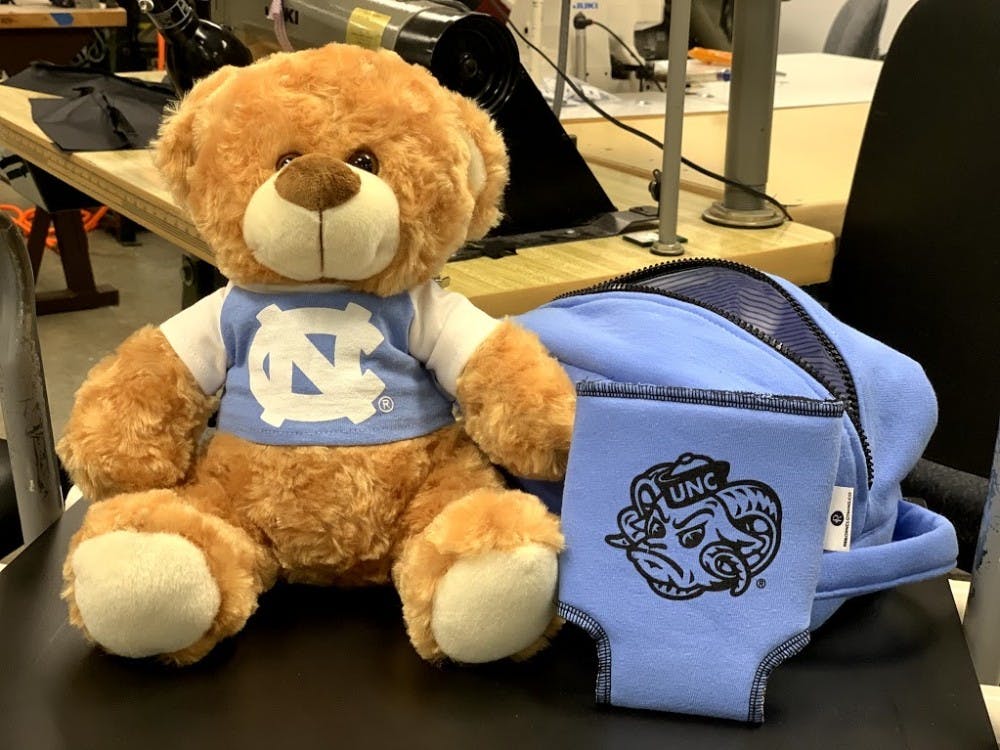UNC has partnered with Reborn Clothing Co., a Raleigh-based upcycling company, to reuse and upcycle unwanted or outdated textiles into new products.
Reborn’s goal is to give used textiles a second life by transforming them into new products. Emily Neville, the founder of the company, said this process is particularly important at universities, which consistently have a surplus of unused products.
Neville, a senior at North Carolina State University, started the company as a sophomore in 2017. In the past year, Reborn has formed numerous partnerships with universities across North Carolina, including N.C. State, East Carolina University, Duke University, Appalachian State University and UNC-Wilmington.
“There are thousands of surplus event shirts, athletic uniforms, promotional banners at every university that essentially get abandoned, and we’re able to turn that would-be waste into a resource, into a useful product in our hands," Neville said. "What we're doing at UNC is creating a closed-loop system, turning UNC surplus materials, surplus textiles into new products for the University."
Reborn's current products, available on the company's website, include blankets, bags and keychains.
Amy Cooke, professor and director of undergraduate studies in the Environment, Ecology and Energy Program in the College of Arts and Sciences, said she believes the partnership with Reborn is one of the first steps the University has taken to reduce textile waste.
“I don’t know what exactly it will look like, but it's the first that I’ve heard on the side of the environmental sustainability push going on in UNC clothing,” Cooke said.
Cooke said that while Reborn might be the first step toward sustainable UNC merchandise, students have historically hoped the University would associate itself with socially-conscious products and brands. Cooke said UNC students have previously been concerned with the labor conditions under which University-affiliated products are made.
“We have really put the time and effort into making sure that our label goes onto clothing that is not made by people under really horrible conditions," Cooke said. "But we don’t do that with the environmental side of our clothing line."



